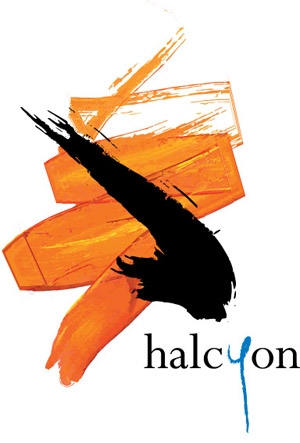TONE BIRDS
Music Workshop, Sydney Conservatorium of Music
Opera-Opera, Dec 2005
Reviewed by David Gyger
A Wide Ranging and Rewarding Evening with Tone Birds
A vocal-intensive concert intriguingly entitled Tone Birds drew a satisfyingly sizeable audience to the Music Workshop at the Sydney Conservatorium on Saturday, October 29.
Unlike the all-Beethoven concert at the Opera House the night before, there was nothing standard about its repertory: four of its components were composed in the 20th century and the other in the 21st, and at least two of them emanated from the pens of composers who as yet don't even flirt with household name stature.
One, Rosalind Page's Hrafnsöngfar, receiving its world premiere performance although it was composed as long ago as 2001, was sung in Icelandic - an exotic tongue which hardly trips off the tongue of very many Australians even in these cosmopolitan times.
Impressively and commendably, both the original Icelandic and an English translation of its text were included in the night's program, but a modicum of the brownie points which would otherwise have been liberally racked up by that ploy were lost because the two texts were presented head to toe rather than side by side, requiring considerable back-and-forthing if one was to keep abreast of the sense of the performance. Though it was innovative, as well as economical, to produce a tall and skinny program by folding A4 sheets vertically rather than horizontally, the frustration was infuriating.
Purely from a musical point of view, this was an evening in absolute nirvana, with the audience treated to a positive feast of vocal artistry from the core members of Halcyon, soprano Alison Morgan and mezzo Jenny Duck-Chong, solo and in duet, backed by a deliciously varied ensemble of 10 instrumentalists under the baton mostly of Mark Shiell.
The concert opened with its most venerable work, Manuel de Falla's Psyche of 1924, and progressed more or less in chronological order. Duck-Chong's delivery of Falla's low-key musings, backed by five instrumentalists under Shiell's baton, was admirably thoughtful, getting the concert off to an engrossing start.
In Oliver Messiaen's Poèmes pour Mi Book 1 of 1939, Morgan was partnered by pianist Clemens Leske in four songs with wildly varying moods and texts. Entitled in turn Thanksgiving, Landscape, The House and Terror, they offer challenging scope for a performer to display dramatic skill as well as vocal beauty, and Morgan underscored their nuances and negotiated their difficulties, which were once considered formidable for performers and listeners alike, impressively.
Duck-Chong, backed by seven instrumentalists, concluded the first half with Michael Berkeley's Winter Fragments of 1996, a seven-part song cycle whose title has a double meaning which, in the words of the composer, "came naturally, partly because I was at that time considering an opera project based on Shakespeare's The Winter's Tale, partly because the music was largely written in a frozen Welsh landscape, and partly because I wanted to write short, spare pieces that combine to create an overall aspect of winter". This interesting, and rewarding, song cycle mirrors its icy provenance splendidly in texts drawn from the works of Shakespeare, James Thomson, Shelley, Longfellow, and Australian David Malouf as well as the composer himself, and provided a varied and rewarding listen in the hands of Duck-Chong and her colleagues.
Apart from its linguistic frustrations, Page's Hrafnsöngfar (Ravensongs), the centrepiece of the evening, responded sensitively to the poems of Hrafn Andrés Harðarson, conjuring up Iceland's often savage and austere landscape, born from undersea fires and was impeccably sung and played by Morgan and her colleagues.
This rewarding concert concluded with Kaija Saariaho's Grammaire des Rêves of 1988, where both singers were heard in a complex fabric of interweaving voices and instruments. Its text, made up of fragments only, is a collage drawn from the poetry of Paul Eluard; the cumulative effect was a kind of surreal unity effectively evoking the Grammar of Dreams of its title and putting the cap on a highly rewarding evening.

